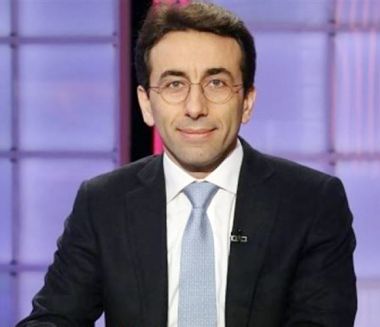By System "The New System"
3 December 2021 Ziad Chabib (See Translation in Arabic Section

Lebanon’s chronic problem since its establishment is that its people are diverse, with religious components that have not succeeded until now in establishing a system of government based on citizenship, equality and just civil rule within a serious framework of guarantees to protect diversity and ensure that one group or a coalition of two or more groups does not dominate the others. Despite that, the Lebanese today are united by a common denominator, which is the definitive belonging to Lebanon that has been entrenched over the past 100 years with its conflicts and calamities that were separated by relative truces that featured temporary prosperity. This affiliation has become an inclusive element upon which to formulate the future of the country, despite the collapses we are currently experiencing. At the forefront of the constitution, Lebanon is a parliamentary democratic republic, based on respect for public freedoms, at the forefront of which is freedom of opinion and belief, and on social justice and equality in rights and duties among all citizens without distinction or preference. The term "republic" comes from the Latin word res publica, which means "public affairs". The public issue is the common denominator among citizens, which by its nature must be clearly separate and distinct from the issue of religious groups to which the Lebanese belong, and which preserves their heritage, and the law guarantees them their privacy, freedom of belief and rituals, and freedom to manage their affairs. Another phrase is that the republic, or the public affair equivalent to it, must be a place that brings together the Lebanese and does not overlap with the current sectarian entities that have been dominated by political references with a sectarian focus that cannot be bypassed or jumped over, says Wajih Qansouh. These references also took control of the republic, its constitutional institutions, its organs, its resources, and its economic and financial sectors. It shared positions in it and transformed it as a means to strengthen its influence and used it to compel citizens to position itself behind it and associate with it in a relationship that combines clientelism with protection and sectarian affiliation. The concept of a dominant or superior sect over other sects has persisted since the inception of Lebanon and it has been applied alternately, and the most numerous sects' references are still there, using various elements of power, concepts and ideological philosophies. But this did not work long in the past, and it will not work today. What must be seriously thought about outside of waiting for the results of the electoral benefits, is the formulation of a serious long-term project based on the re-consideration of the public affairs or the republic, and the beginning is the establishment of political groups that are patriotic in their composition, discourse, policies and goals, and formulate guarantees of equitable distribution and participation in power on the basis of equality between citizens, not equality between references, and the application of a system of positive discrimination between citizens that preserves a place for all and ensures that no group is excluded and prevents numerical control. This new system will become a necessity for all. For those who are first afraid of numerical decline because they will not be able to defend the current system for a long time with the exacerbation of numerical differences, and they must be proactive in embracing it because it contains a permanent guarantee of their existence. Lebanon is a civil, democratic, diverse state, in contrast to the state of Israel, which is based on the rule of one religious component of the people based on the land of Palestine, and is most interested in our survival of warring sects, headed by a dominant sect from time to time. The one-state project that brings together Jews and Arabs on the land of Palestine is a project of many thinkers, led by Edward Said, who considered that “it is possible for them to reach coexistence within one state, not as warring parties, but as equal citizens, provided that Israeli supremacy is ended.” Why don't we start applying an opposite model to its regime, even if the reverse migration from it begins one day, and Lebanon will become the model that is applied here and there and in all of the East. |


